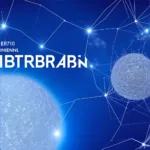
Tokenized loan platform Goldfinch experienced a $20 million loss due to the underperformance of borrower Stratos’ investments in real estate tech and digital assets. The loan, issued in February 2022, consisted of $20 million worth of stablecoins with an 11% annual interest rate. Warbler Labs, the underwriter, revealed that $7 million of the funds are at risk of loss.
Stratos’ Failed Investments
Stratos allocated $5 million to REZI, a real estate tech firm that has ceased making payments and is expected to write down the position to zero. Another $2 million was invested in digital assets, which Stratos sold at a near-total loss. Warbler Labs has committed to backstop all losses to investors in the pool. The remaining $13 million was invested in e-commerce marketplace management startup Threecolts, which has been performing well.
Risks of Tokenized Real-World Assets
The soured tokenized loan highlights the risks associated with tokenized real-world assets, such as private credit. It also raises questions about the due diligence process for blockchain-based RWA lending protocols. In the past year, a series of defaulted loans to crypto trading firms have occurred. This marks the second instance of a lack of transparency from a borrower or a lack of auditing capability from Goldfinch, according to a pseudonymous user.
#
Reputational Risk and the RWA Narrative
Another user commented on the forum post, stating that there is a case of reputational risk. The RWA narrative is just beginning to gain traction, and they cannot afford to let themselves down after building so much. This tokenized loan debacle serves as a cautionary tale for those involved in the rapidly growing RWA industry.
Importance of Due Diligence in Blockchain-based Lending
The Goldfinch tokenized loan loss underscores the importance of thorough due diligence when dealing with blockchain-based lending protocols. As the industry continues to grow, it is crucial for platforms like Goldfinch to ensure that they have robust auditing capabilities and maintain transparency with their borrowers. This will help to mitigate risks and build trust within the community.
#
Lessons Learned from Goldfinch’s Tokenized Loan Loss
There are several key lessons that can be learned from the Goldfinch tokenized loan loss. First, it is essential for lending platforms to perform comprehensive due diligence on borrowers and their proposed investments. This includes assessing the viability of the investments and the potential risks associated with them.
Second, lending platforms must maintain transparency with their investors and borrowers. This includes providing regular updates on the performance of investments and any potential issues that may arise. By doing so, platforms can help to build trust within the community and encourage further investment.
Finally, it is crucial for lending platforms to have robust auditing capabilities. This will enable them to identify any potential issues early on and take appropriate action to mitigate risks. In the case of Goldfinch, having stronger auditing capabilities may have helped to identify the issues with Stratos’ investments sooner, potentially minimizing the losses incurred.
Conclusion
The $20 million tokenized loan loss suffered by Goldfinch serves as a stark reminder of the risks associated with tokenized real-world assets and the importance of thorough due diligence. As the RWA industry continues to grow, it is vital for lending platforms to maintain transparency, have robust auditing capabilities, and perform comprehensive due diligence on borrowers and their investments. By doing so, they can help to mitigate risks, protect investors, and build trust within the community.




